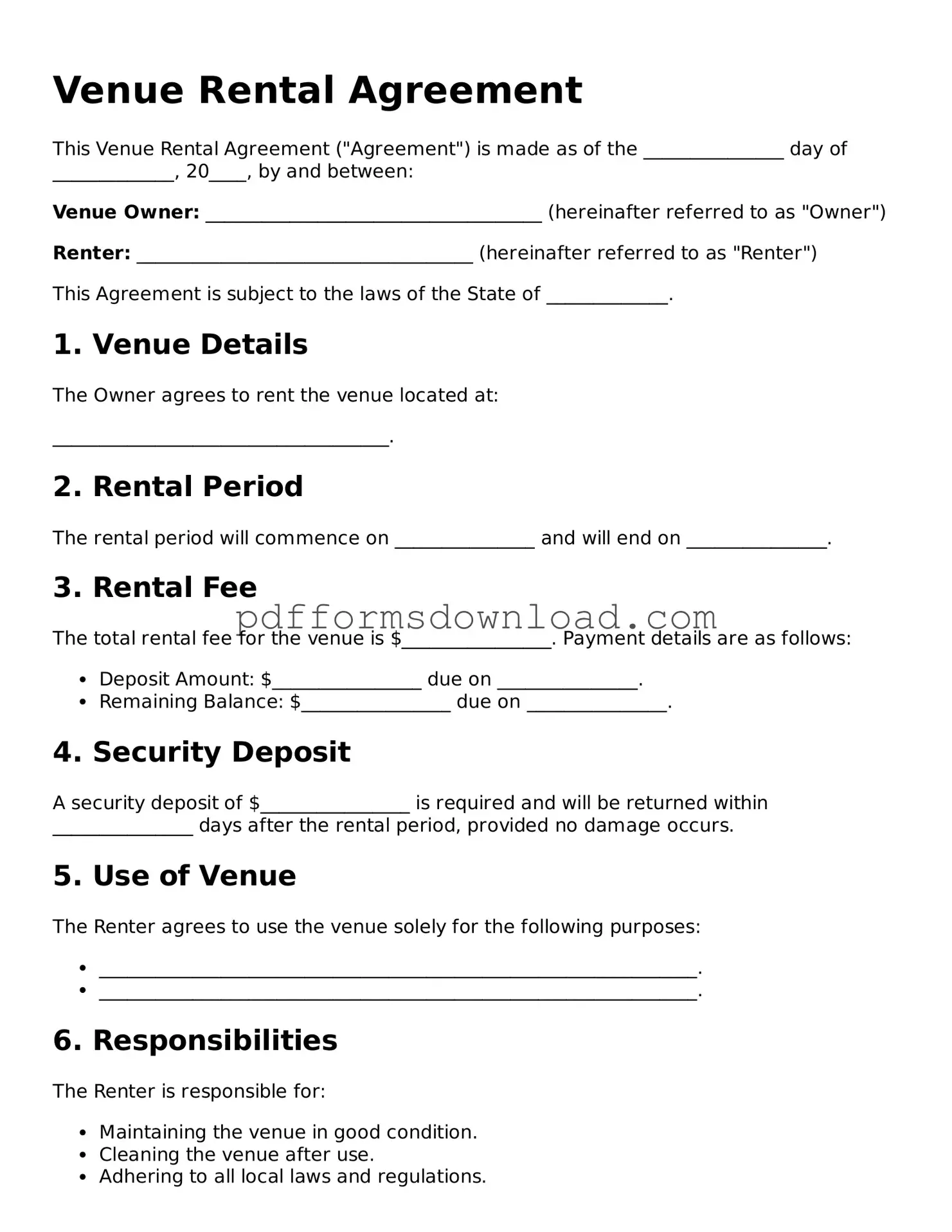What is a Venue Rental Agreement?
A Venue Rental Agreement is a legal document that outlines the terms and conditions under which a venue is rented for an event. This agreement typically includes details about the rental period, payment terms, security deposits, cancellation policies, and responsibilities of both the venue owner and the renter. It serves to protect both parties by clearly defining expectations and obligations.
What information is required to complete the Venue Rental Agreement?
To complete the Venue Rental Agreement, you will need to provide specific information such as the names and contact details of both the renter and the venue owner, the date and time of the event, the type of event being held, and any special requirements or services requested. Additionally, details regarding payment, including the total rental fee and deposit amount, must be included.
What happens if I need to cancel my reservation?
Cancellation policies vary and are typically outlined in the Venue Rental Agreement. It is crucial to review these terms before signing. Generally, renters may be required to provide written notice of cancellation within a specified timeframe to receive a full or partial refund of their deposit. Understanding the cancellation policy helps avoid unexpected charges.
Are there any restrictions on the use of the venue?
Yes, most Venue Rental Agreements include restrictions on the use of the venue. These may pertain to noise levels, the number of guests, decorations, and the types of activities allowed. It is essential to adhere to these restrictions to ensure compliance with local laws and to maintain a good relationship with the venue owner.
What should I do if I have special requests for my event?
If you have special requests, such as catering, audiovisual equipment, or specific seating arrangements, it is important to communicate these needs to the venue owner as early as possible. Many Venue Rental Agreements allow for additional services, but these should be discussed and documented in writing to ensure that all parties are on the same page.
What is the process for making changes to the agreement after it has been signed?
Making changes to a signed Venue Rental Agreement typically requires mutual consent from both the renter and the venue owner. It is advisable to document any amendments in writing, either as an addendum to the original agreement or as a new agreement altogether. This ensures that all changes are legally recognized and helps prevent misunderstandings in the future.

